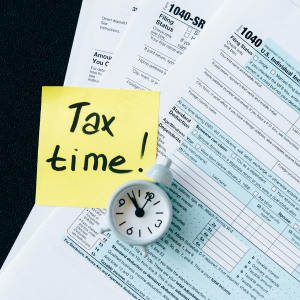
What Are the Consequences of Having Delinquent Property Taxes?

Can Delinquent Property Taxes Lead to Foreclosure?
Unpaid property taxes can have serious effects, including foreclosure. In Connecticut, if you have delinquent taxes, a tax lien might be placed on your property. This lien allows local authorities to foreclose if the debt isn’t paid off. Knowing these consequences is key to keeping your home safe from Connecticut property tax foreclosure.
How Does Debt Affect Your Home Sale?
Having debt, especially from back property taxes, can hurt your chances of selling a home. Before any real estate deal happens, unpaid property taxes need to be cleared up. As a homeowner, it’s important to know that delinquent taxes can make the house-selling process more complicated. Addressing these debts early is needed to ensure a smooth property sale.
What Happens If You Ignore Tax Liens?
Ignoring a tax lien can cause bigger problems. A tax lien can lead to a tax sale, where your property is sold to cover unpaid taxes. To stop this, focus on resolving tax liens before selling your house. Ignoring these liens not only risks your property but also makes future deals tough, like releasing tax liens during a house sale.
How Do Delinquent Property Taxes Affect Your Credit Score?

Is It Possible for Tax Liens to Impact Credit Reports?
Even though tax liens no longer show on credit reports, they can still affect your credit score. Unresolved tax liens make it tough to get loans or mortgages, as lenders see delinquent taxes as a risk. Handling unpaid taxes smartly is vital when preparing a home sale.
Can Paying Off Tax Liens Improve Your Credit?
Paying off a tax lien won’t instantly boost your credit score, but it can make your financial profile look better. Settling tax debt shows you’re responsible, which creditors and lenders notice. Clearing tax liens before selling property can help improve your creditworthiness.
How Long Do Tax Liens Stay on Your Record?
In Connecticut, removing a tax lien involves several steps. After you pay a delinquent tax, there’s often a redemption period when the lien still affects your record. Learning about the Connecticut tax lien removal process is key for homeowners wanting to clear their records and improve their position in the real estate market.
At Valley Residential Group, we stress addressing property tax issues quickly to protect your financial health and property interests.
What Are Your Options if You Can’t Pay Property Taxes in Connecticut?

Are There Payment Plans Available for Overdue Property Taxes?
Yes, Connecticut offers installment plans for property taxes to help people with overdue payments. These payment plans are usually available through your local tax collector and provide a structured way to pay back taxes. However, late property tax payments can impact your finances. Make sure to review the plan terms carefully and see if it fits your budget.
Can You Negotiate Back Taxes with the Tax Collector?
You can try negotiating tax debt in Connecticut. Discuss your situation with the tax collector to explore ways to manage your debt better. Property tax debt negotiation might lead to an easier payment arrangement or lower penalties. Acting fast is key, as resolving tax issues before selling your property can prevent later problems.
Is a Tax Amnesty Program an Option?
Connecticut sometimes offers tax amnesty programs for property taxes. These programs aim to help taxpayers settle debts by providing benefits like reduced penalties or interest. Joining a tax relief program could make settling real estate tax debt easier.
What Steps Can You Take Before Selling a House With Unpaid Taxes?

Do You Need to Clear Tax Liens Before Listing Your House?
Indeed, usually, you have to resolve tax liens before advertising your house. Tax liens can discourage possible purchasers and complicate sales. See the pertinent authorities about return possibilities to relieve tax liens for a house sale. Managing your tax obligations upon property sale depends on this stage.
How Can Documenting Your Financial Situation Help?
Maintaining thorough records of your financial status will be beneficial when addressing delinquent real estate taxes. Clear presentation of your case to the tax authorities by arranging your records can help control tax obligations during the home-selling process.
Should You Consult a Real Estate Attorney?
It’s a good idea to talk to a real estate lawyer in Connecticut, especially when it comes to complicated property tax issues. A property tax lawyer can give you good legal advice and help you understand how to handle tax issues when you sell your house. Getting legal advice can help you make smart choices and protect your rights while you’re selling.
You can handle your property tax problems well if you look into these choices and get professional help when you need it. Valley Residential Group tells homeowners to use these tips to handle their property taxes better and make the buying and selling of homes go more smoothly.
How Can You Market a House With Tax Liens Effectively?

Is It Better to Highlight or Conceal the Tax Issue?
When selling a property with a tax lien, honesty is key. Hiding the issue might seem like a good idea, but being straightforward works best in real estate. In Connecticut, where tax complications can occur, consider these points:
- Highlight the Opportunity: Be open about the tax lien. This can draw in real estate investors who are interested in properties with delinquent taxes.
- Provide Solutions: Outline a clear plan for resolving the tax lien after the sale. This helps make buyers more comfortable knowing there’s a process to handle tax issues.
What Role Does Transparency Play in Sales?
Transparency builds trust and helps avoid legal trouble later. Here’s how to manage tax liabilities when selling your home:
- Seek Legal Advice: Talk to a property tax attorney who knows Connecticut’s real estate laws. Their advice can help you deal with tax issues before they become large problems.
- Clear Communication: Share potential tax liabilities openly with buyers. This will build confidence and trust.
Can You Attract Buyers Willing to Deal With Tax Issues?
To attract buyers willing to handle tax issues, you need a focused approach:
- Market to Investors: Distressed property sales, such as those with back taxes, often interest investors looking for deals in Connecticut. These buyers might take on the tax lien transfer if they get a reduced price.
- Highlight Potential Gains: Show the possible return on investment once the tax issues are handled.
What Are the Legal Implications of Selling a House with Delinquent Taxes?

It’s important to understand the legal implications when selling a house with tax debts. Make sure everything aligns with state rules to prevent future legal issues.
Can You Sell Without Settling Tax Debts?
In Connecticut, selling with a tax liability is possible, but it involves specific considerations:
- Negotiate Terms: Some buyers might agree to purchase and take responsibility for settling the tax debt. This requires clear, legally documented agreements.
- Disclose Obligations: Ensure all tax-related obligations are disclosed upfront to avoid disputes later.
What Legal Advice Should You Seek?
Legal expertise is crucial for dealing with property tax issues:
- Consult a Property Tax Attorney: Hire a skilled attorney who understands Connecticut real estate tax lien laws. They can guide you on reducing tax impacts during the sale.
- Understand State Requirements: Comply with local tax regulations to avoid surprises during closing.
How Does State Law Influence Your Selling Process?
State laws play a big role in managing tax obligations when selling a home in Connecticut:
- Familiarize with Connecticut Real Estate Tax Laws: Learn about local statutes, including homeowner tax obligations, to ensure you aren’t breaking any laws.
- Plan for Compliance: Work with legal professionals to include state law requirements in your selling strategy.
By understanding these points and planning ahead, sellers can effectively manage the challenges of selling a house with tax liens. For more information and personalized offer on your property, contact Valley Residential Group.
What Are Alternative Selling Methods for Houses With Delinquent Taxes?

Can Short Sales Be Beneficial in This Scenario?
A short sale might be a good way to handle a home with delinquent taxes if you can’t pay the outstanding amount. In a short sale, you sell your property for less than what’s owed on the mortgage, but you need the lender’s approval. This approach can work well, especially for a distressed property sale in Connecticut. Talking to a property tax attorney in Connecticut can give you a clear picture of whether this option fits your needs.
What is a Deed-in-Lieu of Foreclosure?
Choosing a deed-in-lieu of foreclosure is another option. Here, you voluntarily hand over your home’s deed to the lender to avoid foreclosure. You must understand how Connecticut real estate tax laws affect this choice and the tax lien removal process in Connecticut. Knowing these terms helps you when thinking about this option.
Should You Consider Auctioning Your Property?
Auctioning your property may be a method to consider if you’re dealing with back taxes. A tax auction in Connecticut can lead to a faster sale, but often at a lower price. Be sure you understand the process of house sales delinquent taxes before deciding. It’s important to clarify everything about the property sale with back taxes to prevent any issues.
How Can You Evaluate Offers When Owing Property Taxes?

Once you explore different selling methods, evaluating offers is the next step. Here’s how to do it effectively.
Should You Prioritize Cash Offers?
Considering cash offers can be helpful, especially when selling with a tax lien, like in California. Cash deals often close faster and have a lower chance of falling through. If you’re selling with tax liability in Connecticut, cash offers might quickly clear your financial duties related to the property.
How Can Contingencies Affect the Offer?
Contingencies can change a house sale negotiation with tax debt. These are conditions that must be met for the sale to happen, which can complicate things if not handled properly. Working on managing tax liabilities when selling a home in Connecticut is important to avoid tax foreclosure. Know how contingencies could impact your situation.
What Financial Documents Should Be Reviewed?
Review the right financial documents carefully. Have all required paperwork related to property tax repayment in Connecticut. Looking at your income, outstanding debts, and necessary documents for a real estate tax sale in Connecticut will better prepare you for negotiations and decisions.
Exploring these options and evaluating offers thoroughly can help you choose the best way to sell a house with delinquent taxes. For more help, consider speaking with experts or advisors, like those from Valley Residential Group, who can offer personalized advice based on your circumstances.
What Role Do Real Estate Experts Play in Selling Homes with Tax Liens?

How Can Real Estate Professionals Assist in These Situations?
Selling a home with a tax lien can be tough, but real estate professionals are a big help. They know how to handle tax issues when selling and give smart advice to make the process smoother. A good real estate professional understands market challenges and acts as a bridge between buyers and sellers, helping to address concerns about liens. Their skills in setting a fair price and marketing the property can keep potential buyers interested, despite any tax problems.
Why Hire a Tax Consultant Before Selling?
Hiring a tax consultant before you sell your home is a wise choice. These experts focus on solving tax issues and can help clear tax liens before you list your house. They look at your financial details and provide solutions, making sure all tax matters are handled effectively. Taking this step not only makes selling easier but also boosts your property’s value. Working with a tax consultant helps avoid last-minute issues that might block a sale.
What Should You Look for in a Real Estate Attorney?
When dealing with legal matters like tax lien transfers, especially in Connecticut, having the right real estate attorney is crucial. An experienced attorney gives legal advice on these complicated issues and ensures that everything follows the law. Find an attorney who has successfully handled similar cases and can negotiate good terms while protecting your interests. Their knowledge of state rules is key to a smooth transfer process, so they are a vital part of selling your property.
What Are Some Strategies for Successfully Closing Deals with Tax Liens?
How Can Negotiation Skills Impact the Sale?
Good negotiation can make a big difference when selling a house with tax debt. Skilled negotiators find ways to balance what sellers want with what buyers worry about regarding tax liabilities. They can lead talks to find a deal that works for both sides, possibly lowering or reworking the tax debt as part of the agreement. By being good at negotiating, sellers improve their chances of getting the sale done, even with tricky tax situations.
Are There Tactics for Reducing Tax Obligations?
To cut down on tax obligations before selling, think about strategic steps. Tax debt negotiation is one way, involving working with authorities or creditors to reduce the tax amount owed. In Connecticut, property tax relief programs may also offer help to residents with large liabilities. It’s smart to check out these options carefully to lower the financial load and ease the sales process.
What Final Checks Should Be Made Before Closing?
Doing final checks before closing is very important. Make sure all tax liens are cleared to avoid future legal issues. This includes verifying that payments are made and getting official proof that liens are removed. At this stage, it’s helpful to work closely with your real estate professional, attorney, and tax consultant. This teamwork makes sure everything is in order, giving confidence and legal assurance as ownership changes hands.
FAQs:
Can You Sell a Home with Delinquent Taxes in Connecticut?
Yes, you can sell a home with delinquent taxes in Connecticut. However, you must deal with the tax lien during the sale to pass a clear title to the new owner.
What Happens If You Don’t Pay Property Taxes in Connecticut?
If you don’t pay property taxes in Connecticut, a lien could be placed on your property. This could lead to a tax deed sale or foreclosure by the local government if not resolved.
Is It Possible to Dispute a Tax Lien with the IRS or Local Government?
Yes, you can dispute a tax lien with the IRS or your local government if it’s incorrect. You need to provide proof and might have to negotiate terms.
How Can I Resolve Unpaid Real Estate Taxes Before Selling My Home?
You can resolve unpaid real estate taxes by setting up a payment plan with your city or paying off the debt before selling your house. This helps make the sale go smoothly.
What Are the Risks of Selling a Property with a Tax Lien?
Selling a property with a tax lien can be risky. It may scare off buyers and cause problems at closing unless the lien is cleared. Talking to a realtor can help handle these issues.
Can You Refinance a Home with Delinquent Taxes in Connecticut?
Refinancing when you have delinquent taxes is tough. Some lenders may allow it if you address the tax lien before or during the refinancing.
Can Previous Owners’ Tax Liens Affect Your Property?
Yes, tax liens from previous owners can affect your property. It’s important to ensure a lien is released when buying a property.
Is Investing in Properties with Tax Liens a Good Idea?
Investing in properties with tax liens can be profitable but needs careful research. Knowing local laws, like Connecticut’s rules on liens, is essential for wise decisions.
Key Insights
- In Connecticut, you can sell your home even with delinquent property taxes. Understanding the process is important.
- It’s best to resolve tax issues before selling. Homeowners should think about negotiating tax debt and exploring tax settlement options in Connecticut.
- You can sell your property with a tax lien by managing unpaid taxes and avoiding foreclosure. Municipalities may offer redemption periods for delinquent taxes.
- It is possible to dispute the tax lien with the IRS or other government entities, which could help ease the sale of your house with a tax burden.
- Handling a property’s delinquent real estate taxes involves understanding the lien release process and meeting homeowner tax obligations in Connecticut.
- For those considering refinancing, address back taxes before selling the property.
- Investigating the Connecticut statute of limitations on tax liabilities can show how they might affect selling a property.
- Releasing tax liens and resolving tax arrears are key steps to make a smooth transaction when selling with tax liability.
- Contacting experienced realtors and legal professionals can assist in handling Connecticut’s real estate tax complications during a property sale.
- Engaging in tax deed sales and understanding the implications for investors in markets like Michigan and Pennsylvania provides more context for Connecticut transactions.
This information applies to Connecticut and its cities, including Hartford, West Hartford, Meriden, Cheshire, and more. For more details, please call us at (860) 589-4663 or visit our website at Valley Residential Group LLC.


